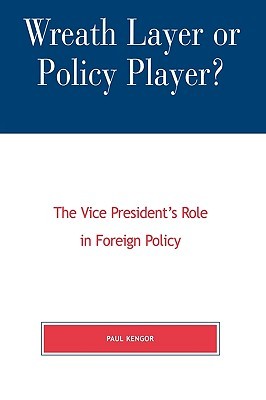
- We will send in 10–14 business days.
- Author: Paul Kengor
- Publisher: Lexington Books
- ISBN-10: 0739102184
- ISBN-13: 9780739102183
- Format: 15 x 22.6 x 1.8 cm, minkšti viršeliai
- Language: English
- SAVE -10% with code: EXTRA
Reviews
Description
Since World War II, American vice presidents have played an ever-increasing role in the nation's foreign policy. This study of the foreign-policy activities of five key vice presidents--Richard Nixon, Walter Mondale, George Bush, Dan Quayle, and Al Gore--provides the first comprehensive analysis of the role of the vice president in foreign-policy affairs. In order to bring readers to a better understanding of this role, Paul Kengor asks incisive questions: Did the vice presidents' involvement in foreign policy actually benefit the administration? If so, what useful lessons can be drawn from their experiences? Is there good reason to approve or reject an enhanced role in foreign policy for future vice presidents? How, specifically, might the vice president be used in conducting the nation's international affairs? The answers to these questions are crucial reading for scholars of the presidency and foreign policy, for policy makers, and for all of us assessing vice presidents past and future.
EXTRA 10 % discount with code: EXTRA
The promotion ends in 23d.02:15:41
The discount code is valid when purchasing from 10 €. Discounts do not stack.
- Author: Paul Kengor
- Publisher: Lexington Books
- ISBN-10: 0739102184
- ISBN-13: 9780739102183
- Format: 15 x 22.6 x 1.8 cm, minkšti viršeliai
- Language: English English
Since World War II, American vice presidents have played an ever-increasing role in the nation's foreign policy. This study of the foreign-policy activities of five key vice presidents--Richard Nixon, Walter Mondale, George Bush, Dan Quayle, and Al Gore--provides the first comprehensive analysis of the role of the vice president in foreign-policy affairs. In order to bring readers to a better understanding of this role, Paul Kengor asks incisive questions: Did the vice presidents' involvement in foreign policy actually benefit the administration? If so, what useful lessons can be drawn from their experiences? Is there good reason to approve or reject an enhanced role in foreign policy for future vice presidents? How, specifically, might the vice president be used in conducting the nation's international affairs? The answers to these questions are crucial reading for scholars of the presidency and foreign policy, for policy makers, and for all of us assessing vice presidents past and future.


Reviews